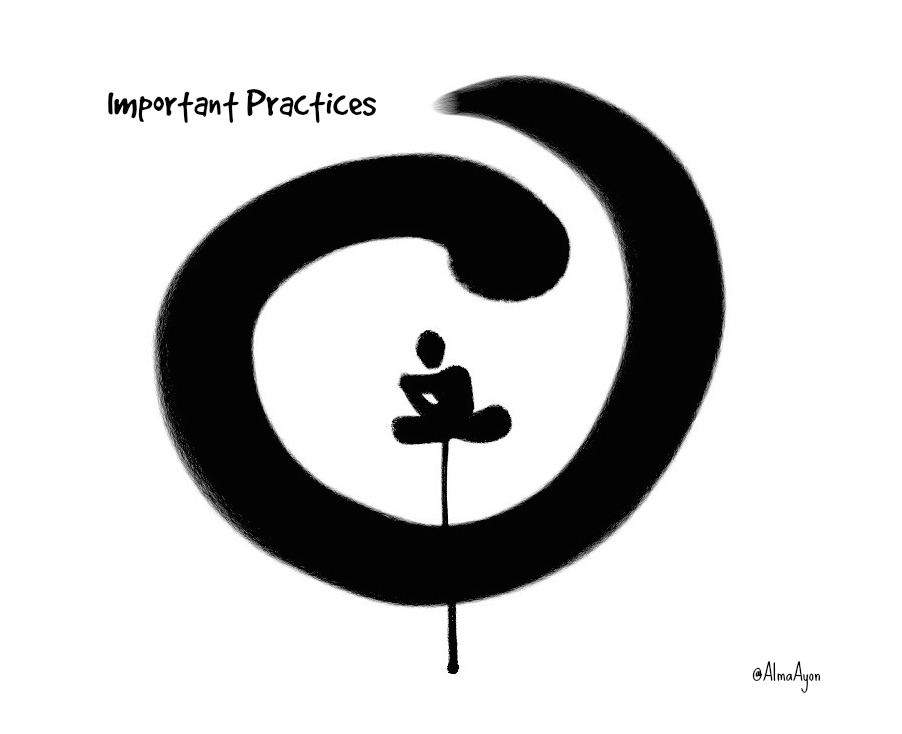When you finish a course or meditation retreat, you find yourself with a great challenge, to give continuity to your meditation practice. During the retreat you had a schedule with a routine and group discipline, you did not have many distractions, there was no Internet, nor did you have to worry about making your food, work and other things. Everything was organized. But when you come out, you get involved with many activities, people, commitments, and very soon you find yourself distracted and not finding time for your meditation. As William James said, what you attend to becomes your reality. So, very soon your reality is different, your past habits return, they pull you back into putting the urgent tasks, your work, social commitments, housework, etc., before your meditation.
This is when you have to remind yourself every day what your priorities are, and this is easier if you dedicate 5 minutes in the morning to reflect on what is significant for your life, and how you can be of greater benefit in the world.
In order to cultivate discipline it is good to set times to do your meditation sessions every day at the same times. When you wake up as I mentioned, it is good to do a mediation session to help you start the day focused and with good motivation. After lunch make another session and before sleeping another.
They can last 15, 30 or 60 minutes. Ideally you want to progress until you can meditate one hour in the morning, one at noon and one at evening. Three hours of meditation a day have a great effect on your mind and you can progress in the practice of shamatha.
Do not worry if you feel you do not have time, if you dedicate 5 minutes, 3 times a day you will begin to feel better and little by little you will find the time to increase your sessions.
During these sessions, it is important that you see them not as a job, but as moments where you can completely relax from all your stress and worries, where you can enjoy the joy that comes from being in the present. This will not only make you feel good, but it will make you want to meditate more. Remember that meditation is not only to release stress, what we are cultivating is a balanced mind, which can be relaxed while developing a lot of concentration, attention, vividness, mindfulness and wisdom.
It is also important to try to be aware during the day of all our actions of body, speech and mind. This is where we apply the practice of mindfulness with discernment, choosing to act in an ethical way, restraining our impulses to offend, criticize, judge, etc. and instead practice patience, generosity, loving kindness, compassion and equanimity.
A practice we can do while interacting with people at work or on the street, is that of Tong Len (taking and giving) where with each inhalation we wish all beings (animals included) to be free of their suffering and with each exhalation we wish them to find genuine and lasting peace and happiness. When you do this practice with people you dislike, wish them to be free of their anger, pride, ignorance, envy, etc., and to develop wisdom, compassion, kindness, patience, and all the virtues you would like them to have. In this way, instead of creating negative karma, you are cultivating a loving and equanimous mind, which includes both friends, strangers and enemies.
Remember, every moment of your day can be transformed into a mental training practice.
I hope these tips help you practice meditation, if you have questions or comments leave them below.

